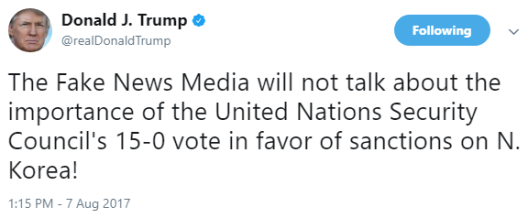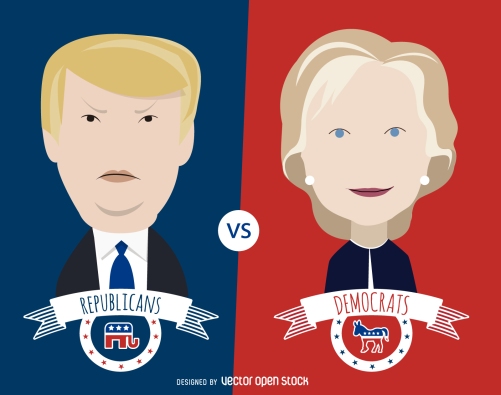The night of the 2016 United States presidential election, millions waited with anticipation to hear who would win the seat for the 45th president. The results left about half of the country shocked when the winner was announced to be Donald J. Trump.
But was his win actually that surprising?
With studies by the Pew Research Center showing that nearly two-thirds of all American adults get their news from social media, the 2016 election was poised to be affected by the power that social media platforms afford in scope and reach of audience.

Trump’s 48 million Twitter followers amassed him an enormous following and his insistence on the media’s role in spreading dis-information about him contributed to the creation of social media echo chambers.
Echo chambers work on social media through algorithms such as the one used by Facebook which filters content based on each users preferences and displays those results more prominently in a persons news feed.
Similarly, echo chambers work within the very people who others follow on social media. If a user only follows people with a certain political affiliation or only read news from a specific outlet or type of news media they begin to construct an echo chamber where the only content users see on social media are those that reflect and mirror those of their own.
One article by the Independent went as far as to claim that echo chambers gave Trump the presidency stating, “Our prismatic view of public opinion through tailored social media feeds not only hid from us the confused, angry people we needed to try and reason with, but it gave us a warped view of their motives.”

Social media’s role in elections is also confounded by the use of bots or automated accounts which agitated more than 1 million tweets in the time between the first and second presidential debates according to research from Oxford University
The issue with bots is that users cannot differentiate between a bot account and a real acount, leading to the further spreading of misinformation and the reinforcing of echo chambers.
“Because bots don’t tend to be mild-mannered, judicial critics. They are programmed to align themselves with an agenda that is unambiguously representative of a particular party. … It’s all ‘Crooked Hillary’ and ‘Trump is a puppet.’ ” -Douglas Guilbeault, Oxford University researcher
The question that remains is where social media will go from the last election cycle. Many experts feel that staying the course and letting the echo chambers of social media further insulate people from one another is not the solution for the preservation of democracy-but then what is?
An article from NPR claims that looking toward other social media outlets such as Snapchat might be one way to reach a different audience and combat the divisiveness of other social media platforms.
Another possible solution is the startup Hi From the Other Side, which was created with the idea to match people with different political views so they can come together in conversation and find commonalities.
However the problems that plagued social media during the last U.S. election cycle are fixed, it is clear that opening the lines of communication and coming together for an honest dialogue-away from the divisions of social media will be imperative for change to occur.

